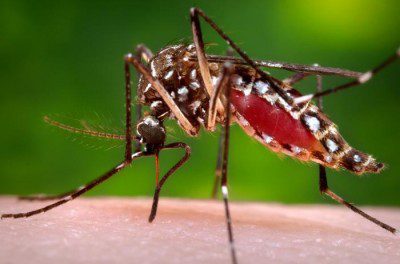FIU researchers present first report documenting Zika’s negative impact on popular Miami district

A new study released by FIU’s Robert Stempel College of Public Health & Social Work found that last year’s Zika outbreak hit the bottom line of Wynwood businesses; some of which reported losing as much as 40 percent of revenue.
The study, which was led by Timothy F. Page, associate professor in the Department of Health Policy and Management, found that despite declines in revenue few businesses changed their prices, inventories or staff levels. This was consistent with the belief that the downturn would be temporary and business would return once the outbreak was over.
“As rainy season returns to South Florida, so does the need for public health and medical authorities to be strategic and forward thinking in preventing and responding to outbreaks,” said Page. “Zika is imminent, and the time for planning and collaboration with local businesses is right now.”
The report reveals decreased revenues, profits and customer traffic in the period following the Zika outbreak compared to the same time the prior year:
- 8 percent of businesses reported revenue declines of one to 10 percent
- 28 percent of businesses reported revenue declines of 11-20 percent
- 53 percent of businesses reported revenue declines of 21-30 percent
- 13 percent of businesses reported revenue declines of 31-40 percent
“Disease outbreaks can cause localized, short-term economic shocks and the impact of these shocks can be severe. Balancing public health needs with the financial well-being of the community is at the heart of the issue,” said Page.
Names of 127 businesses were obtained from the Wynwood Arts District Association (WADA) and the Midtown Miami directory. All were contacted, and 44 participated in the survey (via phone or in-person) between August 15 and October 19, 2016.
More specifically, 14 restaurants, four bars, a dozen retail stores, nine art galleries and five “other” businesses took part in this survey. They responded to questions about their perceptions of revenues, profits, foot traffic, sales prices, inventories, staffing and future expectations about these items. Businesses that didn’t participate cited lack of time or availability of the owner or manager as the main reason.
The report, which publishes this summer in Disaster Prevention and Management: An International Journal, offers feedback from owners/managers of businesses in Wynwood following the 2016 Zika outbreak.






